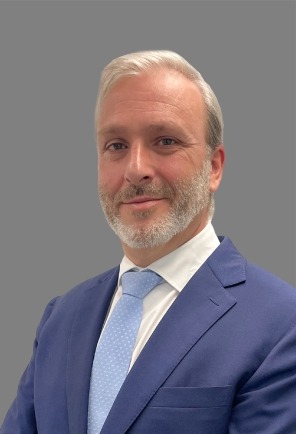International Arbitration in Spain
A Q&A With A&M’s Juan J. Valderas and José Antonio Caínzos Fernandez, President of the Madrid International Arbitration Center (Centro Internacional de Arbitraje de Madrid)
Spain, over the course of the last 40 years, has created and developed a comprehensive and organized arbitration system. To do this, the country ratified the New York Convention in 1977 and then in 1994 did the same with the International Centre for Settlement of Investment Disputes (ICSID) rules and regulations governing international investment arbitration. It then later enacted the Spanish Arbitration Act of 2003 making it a genuine United Nations Commission on International Trade Law (UNCITRAL) Model Law Country. These actions moved the country in line with other established venues paving the way for Spain to become a reliable venue for international arbitration disputes.
In the following interview, A&M’s Juan J. Valderas, leader of the firm’s Disputes and Investigations practice in Spain, sits down with José Antonio Caínzos, President of the Madrid Centre for International Arbitration, to discuss goals for the Centre, its services to companies and how COVID-19 has impacted the broader Spanish arbitration system.
How has the recent ruling by the Constitutional Tribunal impacted conditions for international arbitration in Spain?
José Antonio: Spain’s arbitration environment has recently overcome a “hiccup” when our Constitutional Tribunal corrected previous decisions by some lower court (Madrid Regional top court) that appeared to widen courts’ room to overturn arbitration awards. This has now past and our legal and judicial system fully support a restricted approach to the review of awards by courts, making Spain a safe place for international arbitration.
All this is allowing for the unprecedented development experienced by arbitration in Spain over the past years. The three major arbitration bodies in Spain until now – the Madrid Court of Arbitration, the Civil and Commercial Court of Arbitration and the Spanish Court of Arbitration – have developed, over the past 30 years, significant experience in international cases, especially in energy, construction and infrastructure, and M&A-related disputes.
Nevertheless, the Spanish arbitration system had room for improvement. Spain lacked a truly leading arbitral institution for international arbitration. Consequently, these main arbitration bodies in Spain took the bold step forward to decide joining forces under a new unified single center that would administer international arbitrations. That’s CIAM (Centro Internacional de Arbiraje de Madrid, or Madrid Center for International Arbitration).
Madrid offers so many benefits in terms of being a first-rate international center for arbitration: very competitive economics, a strategic location both geographically and geopolitically, and a sophisticated and vibrant arbitration professional community comprising all major European law and other professional services firms. When, in addition, one considers its appeal in terms of safety, quality of life and standard of living, climate and prices, Madrid has all that could be desired to play in the same league as those cities that have become benchmark international arbitration centers.
As the first President of the Madid Centre for International Arbitration what are the goals of the new centre?
José Antonio: CIAM's main aim is to become a global benchmark in commercial arbitration, while not ruling out work in investment arbitration. It has been decided that CIAM will not specialise in a certain type of arbitration, but instead that it will take on all types of cases although will pay special attention to energy, infrastructure and M&A disputes amongst other areas in which disputes often arise. CIAM intends to focus on geographic and business areas where arbitration is usually used as well as in areas where there is room for growth, such as Latin America. This in turn will help to encourage wider knowledge and greater use of arbitration, also encouraging the growing trend for arbitration in Spanish and Portuguese (in addition to those other languages that currently carry more weight in international arbitration, English and French).
CIAM is the missing piece of the puzzle. The advantage that this center has is that it combines novelty, as an institution created with the demands of the market in mind, with the experience of the Courts that have created CIAM which have been handling international arbitration for years. CIAM has established regulations that reflect the most recent trends and efficient procedures with regard to case management, as well as the highest standards with regard to ethics, transparency and quality. It is especially efficient in terms of time and costs and provides a certain flexibility that will enable it to provide services that are top quality and will secure CIAM's position as a leading arbitration center.
What are some specific services that the Madrid Center for International Arbitration can offer companies?
José Antonio: CIAM wants to provide an answer to the companies’ needs when they are faced with a dispute with a third party. First, the organization does so by offering international mediation services to try to avoid confrontation. When an amicable agreement is not possible, arbitration is the best way to resolve conflicts with international components. But not all courts of arbitration are the same. CIAM has its own values: excellence in service, sustainability through the use of the most advanced technology, transparency, support for diversity and commitment to saving time and costs. This court was born with the support of organisations in which companies are the leading players and wants to continue to be very close to the business world. That is why it has created specialised working groups as a forum where companies, lawyers, arbitrators and other key players such as experts meet to discuss ways of resolving conflicts and what an arbitration court can provide them with.
This active approach that entails listening to the leading players is making CIAM a transformative initiative. This can also be seen in the quality and internationality of CIAM’s governing bodies, commissions for the appointment of arbitrators and mediators and working commissions, that have recruited names of the highest prestige in the fields of mediation and international arbitration from three continents and more than 20 countries.
How has COVID-19 affected the broader Spanish arbitration system?
Juan J.: Covid-19 has created numerous problems among companies, as well as with shareholders, suppliers, and clients that will very likely generate a wave of litigation that risks creating an overload on our judicial systems.
Spain has been hard hit by this COVID crisis. The pandemic, coupled with Spain’s slow-moving judicial system, is generating a sense of need for a reaction from the legal and business communities, who are searching for alternative solutions to a likely looming “tsunami.”
All these factors pose a significant challenge for arbitration operators in Spain. Efficient arbitration (and mediation) services, managed by modern technology-oriented institutions like CIAM will be part of the response to this problem.
As a consultant focused on the Spanish market, what types of international arbitration disputes are you usually involved in?
Juan J.: Over the years, I have acted in a variety of international arbitration cases as an independent expert in the calculation of damages, loss of profit, and acquisition price adjustments, in the context of both commercial disputes and investment arbitration. We always seek to put together a team that can offer industry knowledge along with litigation experience. From an industry perspective, I have worked on a significant number of matters for the construction, energy, manufacturing and financial sectors.
How has the Spanish Arbitration Club’s Code of Best Practices around ethical standards and litigation funding changed the arbitration market, if at all, in the last eighteen months?
Juan J.: The Spanish Arbitration Club’s Code of Best Practices around ethical standards is a very ambitious initiative to elevate Spain’s professional community and practice around arbitration to become an international best practice reference. Its impact can already be felt in the conditions required from arbitrators and experts, bringing a positive renewal and widening of the pool of professionals involved, countering any risk of endogamy, and opening further the day-to-day practice to international professionals.


